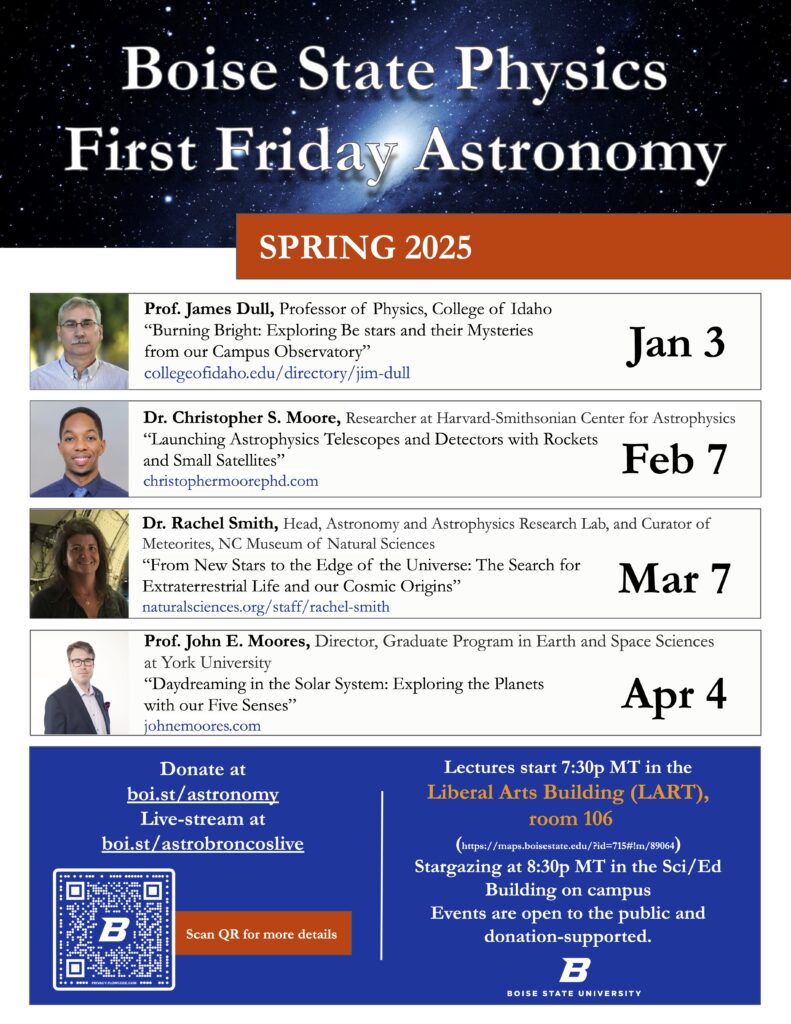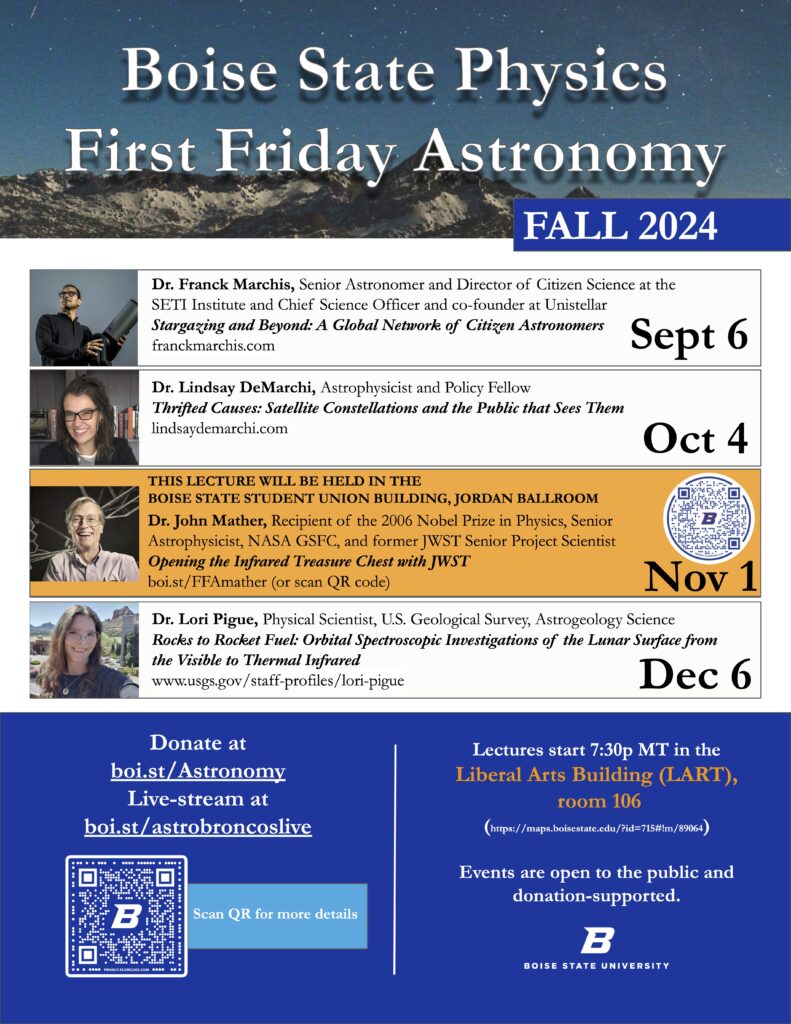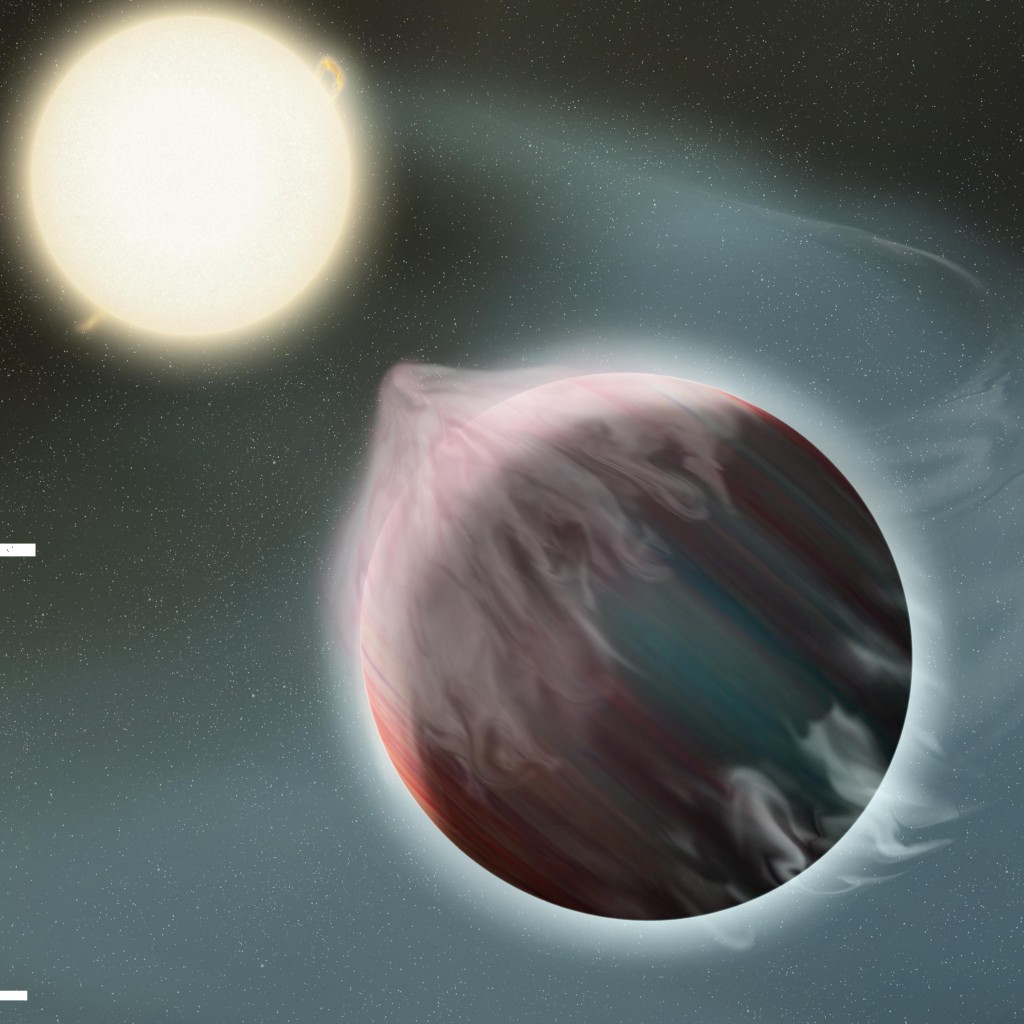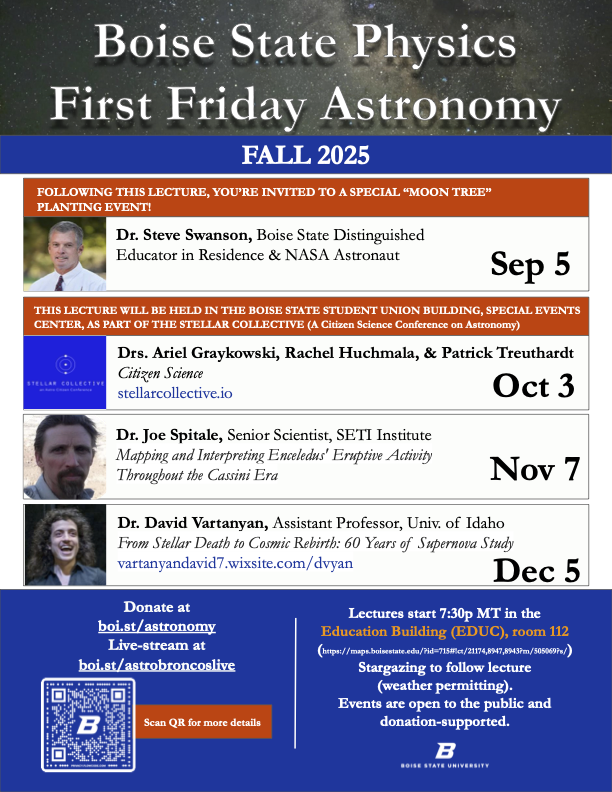
First Friday Astronomy
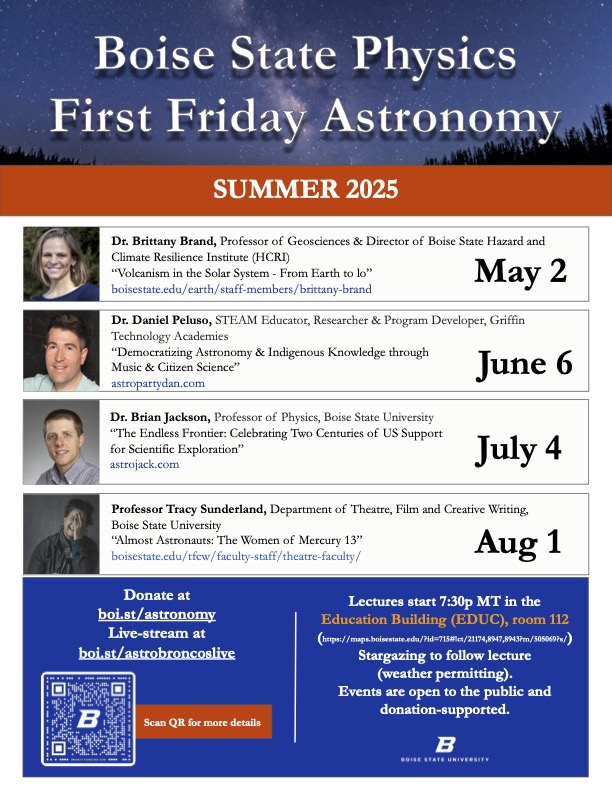
Join Boise State Physics in summer 2025 for our internationally-renowned First Friday Astronomy programs. They take place on the first Friday of every month at 7:30p MT in the Education Building (https://maps.boisestate.edu/?id=715#!m/89069), room 101 or online at boi.st/astrobroncoslive.
Among different fields of science, astronomy has a unique history of citizen science projects. In the last few decades, the advent of user-friendly software and web infrastructure, as well as off-the-shelf research-grade instrumentation, has led to a golden age of citizen science astronomy. Opportunities for amateurs to contribute meaningfully to astronomical research have never been more plentiful.
Continue Reading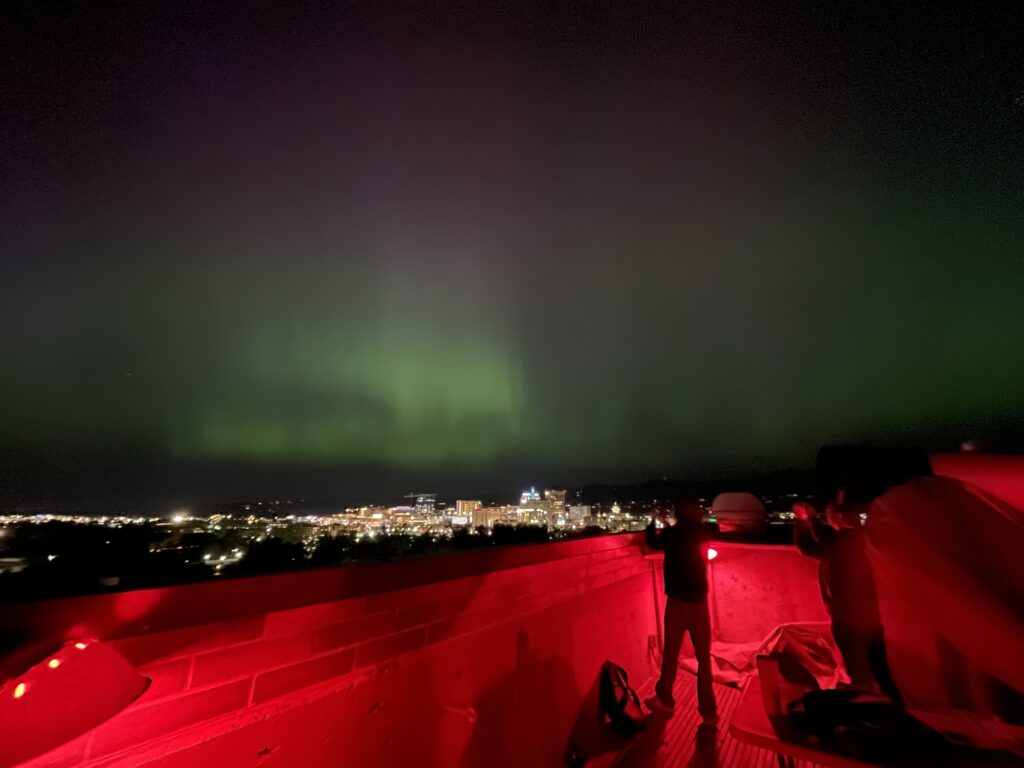
An usually active Sun has given us some especially brilliant and visible Northern Lights in recent months. For Boise State Physics’ July 2024 First Friday Astronomy event, we’ll host Dr. Elizabeth Macdonald, director of NASA’s Aurorasaurus project. In preparation for that event, I’ve written this short primer on the science of the Northern Lights.
Continue Reading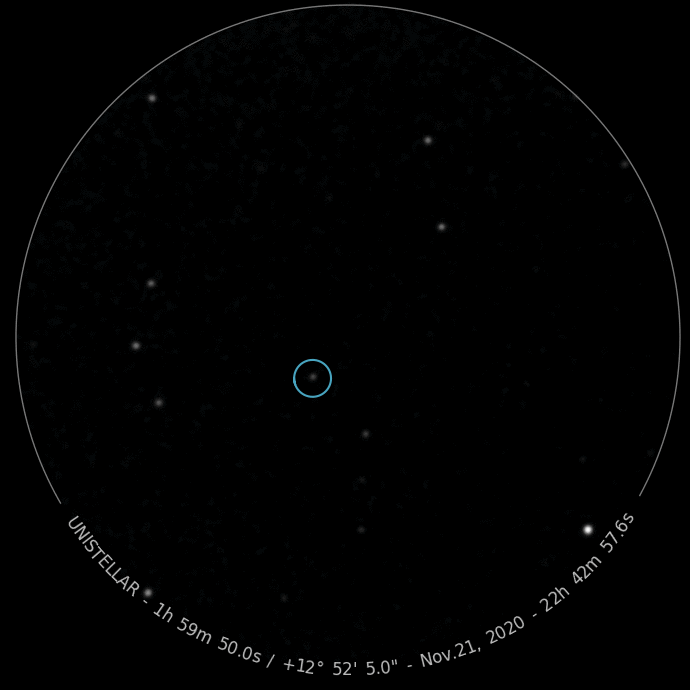
The advent of increasingly sophisticated, commercial-grade astronomical hardware and software is democratizing science in a profound way. Citizen scientists have helped find planets in other solar systems, classify galaxies, and spot supernovae. Closer to home, citizen scientists are helping unlock the mysteries of our own solar system through the science of occultations.
Continue Reading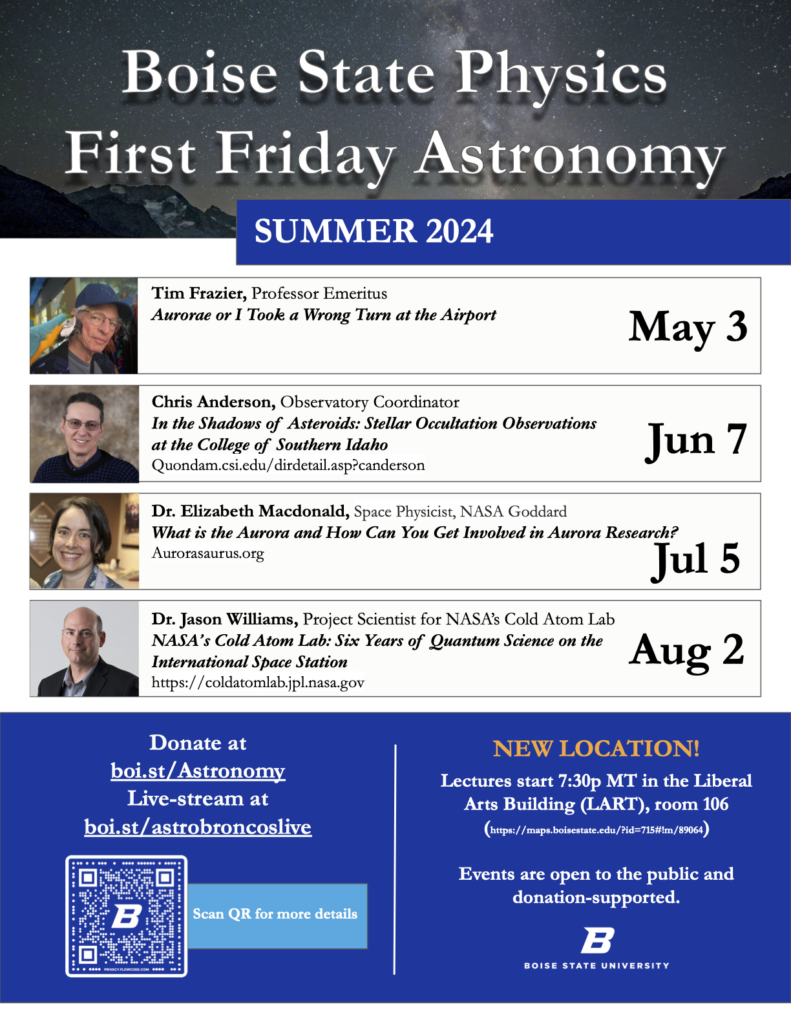
Boise State Physics First Friday Astronomy Summer 2024 Line-Up
NEW LOCATION!
Lectures start 7:30p MT in the Liberal Arts Building (LART), room 106 (https://maps.boisestate.edu/?id=715#!m/89064)
Events are open to the public and donation-supported.
Though worlds in our Solar System have been rocked by geological upheavals, mountain-shattering impacts, and climatic disasters throughout their histories, we think they have remained essentially intact. The planets we see today have been here since they first coalesced 4.5 billion years ago. But that long-lived stability may be the exception and not the rule. Indeed, astronomers now know many planets face destruction through what’s called tidal disruption, and recent searches have revealed direct evidence of the final moments for these doomed worlds.
Continue Reading